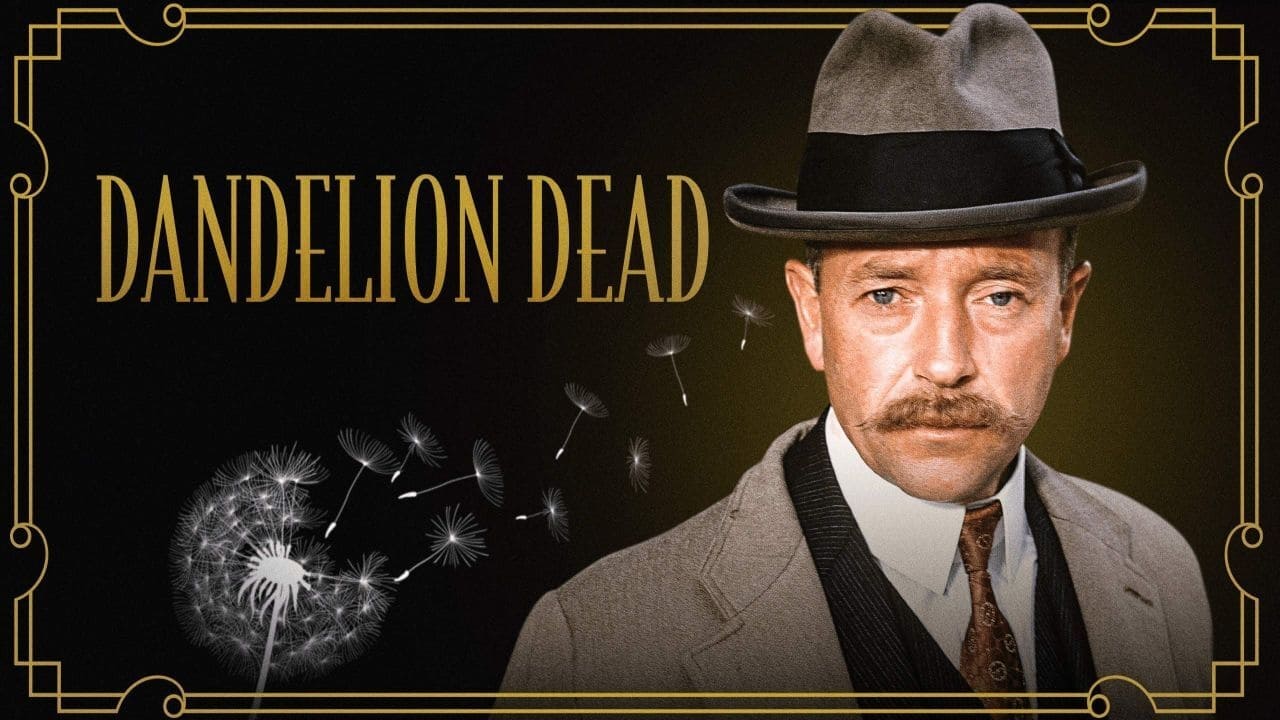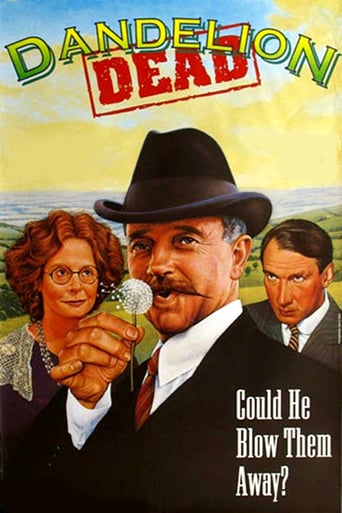

This production brought to bear some of the finest English talent of its day, and captures a bygone time and place in a way I would say only the English could. Michael Kitchen is gentle and always personally appealing, and he has realized a heart and soul here--a good man driven to do truly bad things out of a desperation he dared not face and a wife no sane man could bear. The wife is wretched, cruel, and self-centered; dutiful on the surface but the very picture of a ball-breaking witch, and a mother bent on ruining everyone's life around her while feeling herself the victim and thinking she has the whole world fooled. I halted after the first segment, feeling no desire to watch it all, but I read accounts of the real story and the next day saw the rest of the show. It is beautifully done, and Michael Kitchen is always mesmerizing. Chloe Tucker--an actress I had not seen--is a wonderful surprise, turning in a totally believable performanc as the oldest Armstrong daughter, and all the cast rises beautifully to the material. DANDELION DEAD will haunt you.
... View MoreThis is a harrowing, totally gripping British TV mini-series in which Michael Kitchen gives what is probably the finest performance of his career. It is based on a true story, of a respectable solicitor and magistrate's clerk, a pillar of his community and of his Masonic lodge, Major Herbert Armstrong, who poisoned his intolerable and domineering wife with arsenic which he had originally bought to poison the dandelions on his lawn. Michael Kitchen shows a supernatural ability to become this character. He is a perfectly amiable and beautifully mannered gentleman of the Old School. Throughout the entire tale, no matter what pressure he is under, no matter how intolerable his situation, he never cracks. His manners never fail him. He is true to his manners to the very end. I cannot reveal the end, but believe me, most people wouldn't have kept their manners under those circumstances. The story is set in the small town of Hay-on-Wye, near the border of Wales, and the year is 1921. The screenplay by Michael Chaplin is absolutely brilliant, but the direction by Mike Hodges is even more so. The way Hodges captures every nuance of atmosphere of this past age is simply amazing. The art direction, sets, costumes, props, are utter perfection. Location filming really took place on the Welsh borders, where the relatively deserted aspect of the beautiful scenery has not changed all that much in a hundred years when seen from the right angles. After all, Shropshire is desperately under-populated even now, and Herefordshire is far from populous either. The cinematography by Gerry Fisher is outstanding, possibly the best work of his which I have ever seen. I first got to know him when he was operator for Freddie Francis. He is a truly delightful fellow. It is difficult to imagine that he is now 86. He retired five years after shooting this, and if he had never shot anything else, he would have laurels aplenty to rest upon, looking back at this absolutely beautiful job of capturing the spirit of the place and the magic of the time. He was always particularly sensitive to green locations, soft light, and real interiors, and was a true artist in his work. He knew how to draw the most from the most attractive aspects of the world around him. Gerry, I salute you for the magic you have brought to the screen on countless occasions! As for the other actors, Robert Stephens is astoundingly good in a cameo role as an impoverished local squire who drinks too much but is as hearty and good a chap as can be, though hopeless, irresponsible, and lets down his oldest friend. He is perfect in the role, and he cannot but remind many of us of certain such friends of yore, endearing but never to be relied upon. Apart from Kitchen, the outstanding and dominant presence in this production, though only in the first half (because then she dies), is Sarah Miles as Mrs. Armstrong. My God! Such a scary performance! She is too, too real. We have all hoped never to meet such a person, we know they exist, we may have met some, but to see one revealed raw on screen, her bile dripping from her maw, vitriol oozing from her every look, is a positive terror. And like all really ultimately terrifying persons, she can be quiet, calm, and focused in her destructive sarcasm, puts-downs, and horrifying dominance. It is a magisterial depiction of an impossible woman, all steel and no heart. David Thewlis is, as usual, magnificent as the stiff antagonist of Armstrong, and eerily portrays a man uncomfortable in his own skin, knee-capped by self-doubt, shy, but rigid. Lesley Sharp is just right as the chemist's daughter who complains that there are no men left because of the War and when she sees one, namely Thewlis, wraps him up in a parcel and carries him off to the wedding feast as rapidly as she can. Diana Quick is touching in her cameo role as Armstrong's lost love. Everyone is good. Bernard Hepton is a master of looking censorious when the time comes, his joviality disappearing in a flash when things get serious. Chloe Tucker is truly outstanding as the elder daughter of Armstrong, Eleanor, who is forced to grow up too soon and cope with big grown-up situations with courage and sad resignation. One wonders why such a talented actress has disappeared from our screens and not appeared in anything for ten years. This is a tragic, beautifully-observed tale, every detail attended to with a perfect touch. The ultimate tragedy is that of Major Armstrong himself, a man true to his manners and social ideals to the very last, and a jolly good fellow and loving father, who just has this one fault, that instead of losing his cool and dropping his manners when things get too tough, instead of shouting or lashing out, he copes instead by reaching for the arsenic, since he does not know what else to do. It does seem the best and most elegant solution to him when he is in extremis. After all, what is a chap to do, one can't be angry or impolite, so best to deal with things quietly, and perhaps everything will turn out all right, with just a little touch of murder setting things to rights. What a brilliant, subtle, and sophisticated mini-series this is.
... View MoreThis story,if it is really based on truth,suggests one of the greatest miscarriages of justice imaginable.But,not,you might think,for the same reasons most people would imagine.I happen to have my own points of view.Consequently,in my opinion,Sarah Miles is one of the biggest catastrophes to every appear on screen.She can't act,looks like a horror,and has no sex appeal at all.I can't understand what anybody sees in her.And hanging a man who poisoned her is a true crime.He should have been declared a hero,been awarded a medal,had stamps struck in his honor,and had a holiday declared for his gallant action.
... View MoreI watched this film knowing nothing about the case, or Major Armstrong before, and found it engaging, and very well acted - but still a bit cold and distant.The story follows Major Armstrong, a lawyer with a shrewish wife who plots to murder her and a business rival with arsenic. Michael Kitchen does excellent work as Armstrong, playing him as extremely conniving, but also horribly pathetic and weak. David Thewlis does a great turn as well as terminally shy fellow lawyer Oswald Martin, whom Armstrong attempts to murder because of a real estate deal gone south.These performances are worth watching "Dandelion Dead" alone, as well as the interesting true-life story, but director Hodges fails to really delve into the psychological thriller aspects of the material, which seem so apparent, so the whole experience fails to really connect with the viewer emotionally.
... View More